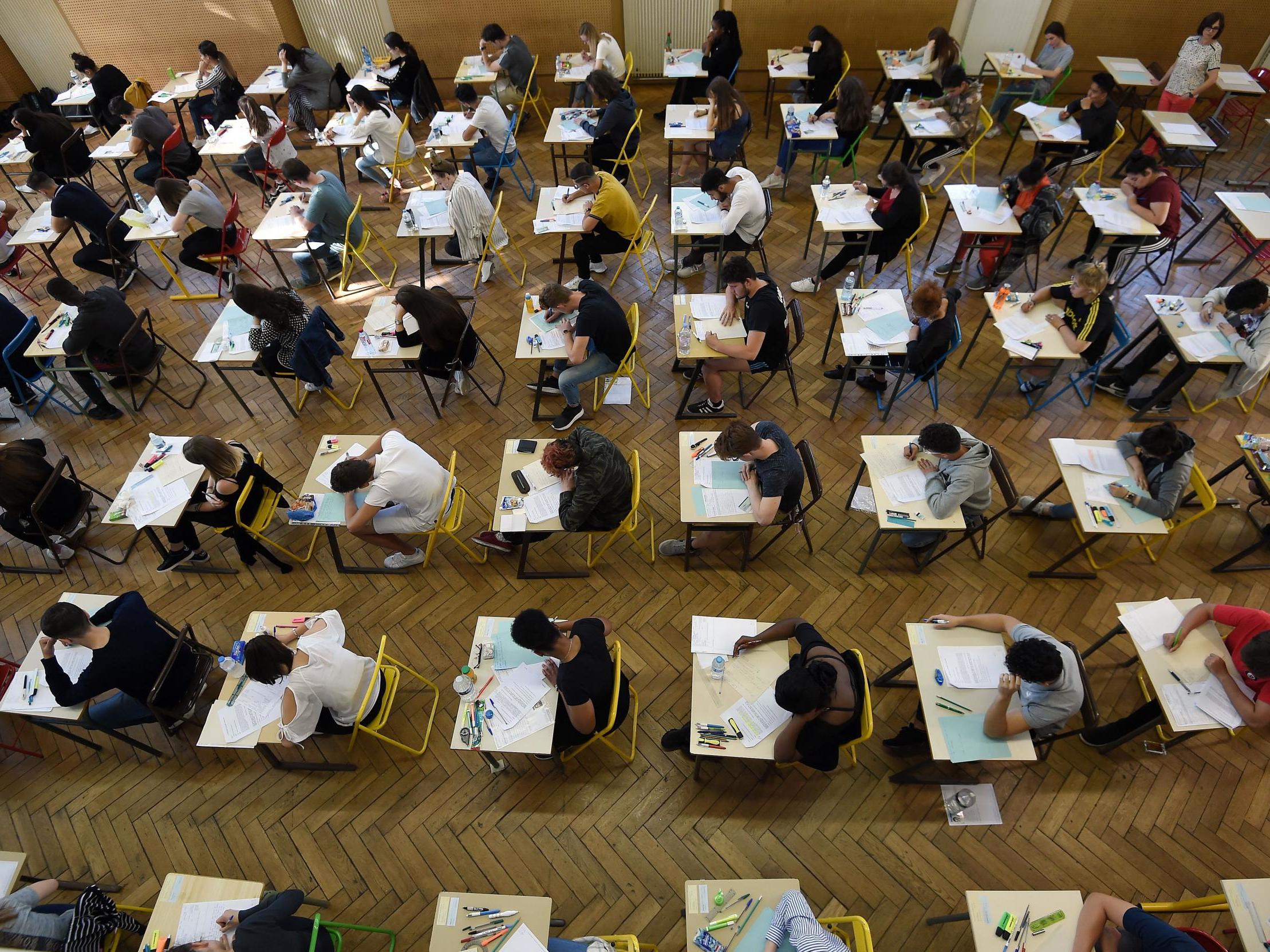Zero-tolerance approaches to bad behaviour in schools are ‘inhumane’, teachers say
One child punished for saying thank you to canteen staff when told not to speak

Your support helps us to tell the story
From reproductive rights to climate change to Big Tech, The Independent is on the ground when the story is developing. Whether it's investigating the financials of Elon Musk's pro-Trump PAC or producing our latest documentary, 'The A Word', which shines a light on the American women fighting for reproductive rights, we know how important it is to parse out the facts from the messaging.
At such a critical moment in US history, we need reporters on the ground. Your donation allows us to keep sending journalists to speak to both sides of the story.
The Independent is trusted by Americans across the entire political spectrum. And unlike many other quality news outlets, we choose not to lock Americans out of our reporting and analysis with paywalls. We believe quality journalism should be available to everyone, paid for by those who can afford it.
Your support makes all the difference.Zero-tolerance approaches to discipline in schools are “inhumane” and using isolation booths for extended periods have a “detrimental” effect on children’s mental health, teachers have warned.
Behaviour management policies in schools, which have been branded “draconian”, should be challenged over their impact on vulnerable pupils, teachers said, with one calling it “child abuse”.
The comments were made by members of the National Education Union (NEU) during a debate on “mental health in exam factories” at their conference in Liverpool.
Sally Kincaid, a teacher from Wakefield, said she knew of a seven-year-old child who “failed” the punishment system because he said thank you to canteen staff when he was not allowed to speak.
“If you see that as education then God help you because I do not,” Ms Kincaid said.
Meanwhile, Callum Wetherill, a teacher from Kirklees, said he knew of a school with a behaviour policy where children can be excluded for tapping, swinging on a chair or sighing when in an isolation room.
The remarks come as a mother of an autistic child who tried to take her own life in an isolation booth at an academy school is threatening legal action against the government.
The girl, who has autistic spectrum disorder, was put in isolation by her school in Kent for more than a month, where she was forced to remain silent and had no directed teaching.
Anna Wolmuth, from Islington, said: “We have heard horror stories from across the country. Children being made to cry in assemblies. Children spending six hours a day in isolation booths.”
Last year, a BBC investigation revealed that around 5,000 children with special educational needs attended isolation rooms in 2018 – and more than 200 children were placed in isolation booths for a whole week.
At her former school, Ms Wolmuth said the referral room was filled with children with special educational needs and “those with difficult things going on at home".
She added: “This is when behaviour management is a euphemism for child abuse.”
The motion, which was passed by NEU members, describes zero tolerance approaches as “inhumane”, adding they have led to informal exclusions and children spending “harmful” periods in isolation.
Carole Buxton, a teacher from Hackney, said: “Zero tolerance approaches are divisive, damaging and wrong. They are one of the causes of exclusions, putting children out of the education system.”
The motion added: “The use of isolation booths for extended periods has a detrimental effect on the mental health and education of all children.”
The debate came as a survey revealed that more than four in five teachers had seen a rise in mental health problems among pupils, with some children as young as nine talking about suicides.
Kevin Courtney, joint general secretary of the NEU, said: “The current draconian approach to the education of children and young people is turning our schools into exam factories and squeezing the joy and creativity out of the classroom.
“As a result, more and more children and young people are being diagnosed with depression and the levels of unhappiness are soaring.”
Join our commenting forum
Join thought-provoking conversations, follow other Independent readers and see their replies
Comments